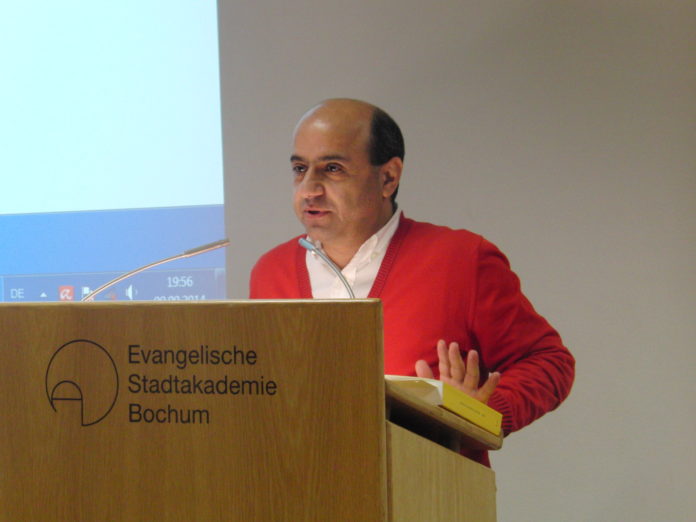BOCHUM, Germany — “Since the early Middle Ages, since the invasion of the Seljuk Turks in the 11th century, the Armenians have been fighting for the restoration of their independence in their own land – with unshakeable hope. In this they have traditionally expected aid from the Christian West. Germany has had an important role in this context.”
Thus reads the text of an invitation issued for an event held recently in Bochum, a city in the Ruhr region. The timing could not have been more opportune; since last May, friends of Armenia abroad have been following the developments associated with the Velvet Revolution with keen interest. Where is the country going? What are the models – if any—that the new leadership looks to for inspiration? And for support? What will the response of friendly nations and trade partners be to the new course charted by Armenia?
Hosting the evening were Heide Rieck, author and spokeswoman of the Bochum Literati, and historian Azat Ordukhanyan, director of the Armenian Academic Society 1860, the oldest Armenian organization in Germany. Engaging in a wide-ranging dialogue, they reached back into history to review the relations between Armenia and the West, asking what expectations Armenians had from European powers, and how the latter responded. Thus the title, “Ex Occidente Lux! Armenia’s Visions of Liberty with Regard to Germany.”
The Prophecy of Nerses
Rieck, who has been active in promoting Armenian-German cultural exchange, is also co-author of a new translation of Paruyr Sevak’s poetry. She posed questions to Ordukhanyan, who illustrated his remarks with examples from various epochs of Armenian history. Tracing the notion back to the 4th century, that the “light” – lux – would arrive from the Occident, he cited an ancient document reporting on a prophecy articulated by Catholicos Nerses the Great, which foretold the future of his people for the subsequent centuries. What was the prophecy? Rieck asked. “The fall of the Arshakouni dynasty is imminent and the end of the house of the Patriarch Partev, also the separation of the Armenian Church from the universal Christian Church as well as the total decay of the country as a consequence of the internal strife among the princes. The successive entry of foreign rule over Armenia was also prophesied and finally salvation through Rome (i.e. through the West) and with it the inauguration of a Golden Age, an age of enduring peace.”










